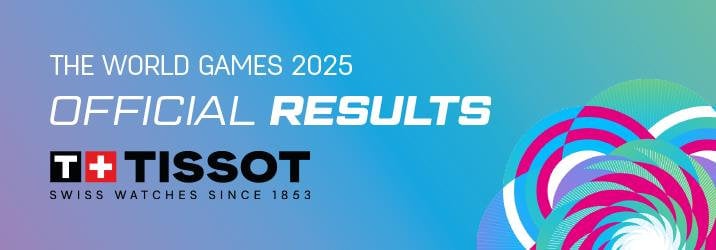At this year’s IWGA Annual General Meeting (AGM) at Gold Coast, Australia, IWGA Board member Jan Fransoo introduced a strategy paper on the development of the organisation itself, and its event The World Games. The draft version was developed by Jan Fransoo in cooperation with Board member Antonio Espinós, and supported by IWGA CEO Joachim Gossow and Sebastian Garvens, Head of IF and Games Services. It is entitled: "The World Games - Growth Beyond Excellence - Agenda for the development of The World Games and the International World Games Association".
The delegates of the 37 member federations welcomed the proposal for a strategic reorientation. The encouraging feedback now enables work to begin on a concrete elaboration and a corresponding revision of the IWGA constitution and regulations. The international federations can then vote on a corresponding proposal at the AGM 2020 in Beijing.
One of the key points of the strategy paper is a revised version of the admission of new members. Jan Fransoo first made it clear that all current federations can and should remain part of The World Games family. New applicants must be IOC Recognised International Federations. Furthermore, full Members of ASOIF (and AIOWF) cannot apply for IWGA Membership. Instead, they can be allocated an observer status. The provisional definition of this is:
“Observer status is temporary, and only open to those Federations that are not a Member of the IWGA and feature on the programme of the next edition of The World Games or of other events that the IWGA organises.”
In addition, the Board will seek dialogue with member federations that have not applied for participation or have not participated in The World Games programme in two consecutive Games. The purpose of this dialogue is to discuss their fruitful continuation of membership within the IWGA. In principle, new members should make a contribution to the further development of The World Games with their sport and disciplines.
The strategy paper also advocates increased participation by athletes in the further development of The World Games. To further this plan, there shall be a forum to which chairs of the athletes' commissions of the member federations would be invited.
Another part of the future planning is the determination of an upper limit for the number of athletes taking part. The proposal states:
“The number of participants for the official programme for 2025 will be increased up to 5,000 (from 4,200). This number will consist of 4,000 participants proposed by IWGA Members, 400 participants in disciplines proposed by the host city, 400 participants from disciplines proposed in consultation with the International Olympic Committee, and 200 participants from disciplines proposed in consultation with the International Paralympic Committee.”
With the latter, the IWGA clearly indicates its ambition to integrate para-disciplines into The World Games. The final decision on the participating federations, disciplines, and the allocation of the quota shall remain with the Executive Committee of the IWGA.
Finally, and this is further good news for The World Games family: The IWGA has a clear ambition to move towards financially supporting the International Federations that deliver sport events in the programme of The World Games. Obviously, this is dependent on raising the revenues generated by the IWGA, for which specific initiatives are sought.
The World Games is a multi-sport event staged every four years by the International World Games Association under the patronage of the International Olympic Committee. The 11th edition of The World Games will be held in Birmingham, Alabama, USA, 15-25 July 2021. 3,600 athletes from over 30 sports and 100 countries will take part in the Games.


